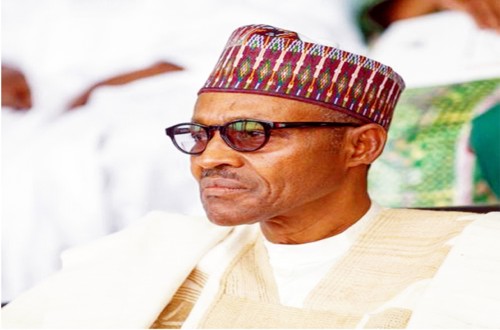The Federal Government of Nigeria has denounced the listing of the country by the United States as one of the countries known for “systematic, ongoing, egregious religious freedom violations.”
It however said it would vigorously engage Washington to ensure that Nigeria was removed from the blacklist of countries that violate religious freedom
The government described Nigeria as a nation that “jealously protects religious freedom as enshrined in the 1999 Constitution and takes seriously any infringements in this regard.”
The Christian Association of Nigeria (CAN) also reacted to the development, saying there was religious freedom in Nigeria. It however admitted that Christians, especially in the North, were being persecuted.
US Secretary of State Mike Pompeo announced the classification and blacklisting of Nigeria via Twitter on Monday.
“Today the U.S. designates Burma, China, Eritrea, Iran, Nigeria, the DPRK, Pakistan, Saudi Arabia, Tajikistan, and Turkmenistan as countries of concern under the International Religious Freedom Act of 1998 for engaging in systematic, ongoing, egregious religious freedom violations,” he tweeted.
Pompeo said “no country or entity should be allowed to persecute people with impunity because of their beliefs.”
He did not elaborate on the reasons for including Nigeria, which has a delicate balance between Muslims and Christians
But Minister of Information and Culture Lai Mohammed and the Federal Ministry of Foreign Affairs expressed displeasure with the development.
Mohammed described the US position as “a case of honest disagreement between the two nations on the causes of violence in Nigeria.”
Mohammed, in a statement yesterday said: ”Nigeria does not engage in religious freedom violation, neither does it have a policy of religious persecution.
“Victims of insecurity and terrorism in the country are adherents of Christianity, Islam and other religions.”
Spokesman for the Foreign Affairs Minister, Ferdinand Nwonye, also said in a statement that the Federal Government remained committed to ensuring respect and protection of all citizens’ right to religious freedom and promotion of religious tolerance and harmony.
The statement reads in part: “The attention of the ministry has been drawn to an announcement by the US Secretary of State, Mike Pompeo, stating that the government of the United States has designated Nigeria as a ‘country of concern under the International Religious Freedom Act of 1998.’
“The Federal Government received the news with surprise, that a secular country under a democratic government will be so designated.
“The ministry wishes to assure that the Nigerian government will engage the US government to express its displeasure and request that Nigeria be removed from the list.”
CAN said: “Although there is religious freedom in the country but there are a lot of religious persecution in most of the states of the federation, especially in the Northern part of the country.
Pastor Adebayo Oladeji, Special Assistant (Media and Communications) to the CAN President, Rev Samson Ayokunle, told The Nation in Abuja, that the Christian umbrella body was encouraged that the world was aware of what is happening in the country.
It however said it was unhappy that the US placed Nigeria on a religious freedom blacklist.
Oladeji said:” Some states like Kano and Jigawa do not allow churches to buy lands. Even when they buy through individuals, they are denied Certificates of Occupancy. Many states in the North do not even allow churches to be built within towns and cities. In places like Zaria for instance, there are no churches within the city.
“In the area of Education, Christians are not allowed to study courses like Medicine and Law in some universities in the North. Most of the federal universities in the North do not allow a Christian to become a vice-chancellor.
“All these discriminatory policies are nothing but religious persecutions.”
A group, the Human Rights Writers Association of Nigeria (HURIWA), threw its weight behind the blacklisting of Nigeria, saying it “reflects the reality of the human rights fiasco and poor observance by government of freedom of religion of a lot of Nigerians.”
HURIWA also demanded that sanctions ought to follow such classification were not strong enough since the cases of suppression of the freedom of religion has continued even after Nigeria was added to the list two years ago.
National Coordinator of the group Emmanuel Onwubiko and the National Media Affairs Director Zainab Yusuf, urged the US to be much more firm, decisive and resolute in implementing sanctions targeting key government officials.
They listed President Muhammadu Buhari; Vice-President Yemi Osinbajo, Federal Executive Council members, Kano State Governor Abdullahi Ganduje and his Kaduna State counterpart Nasir El-Rufai as some of such top government officials.

